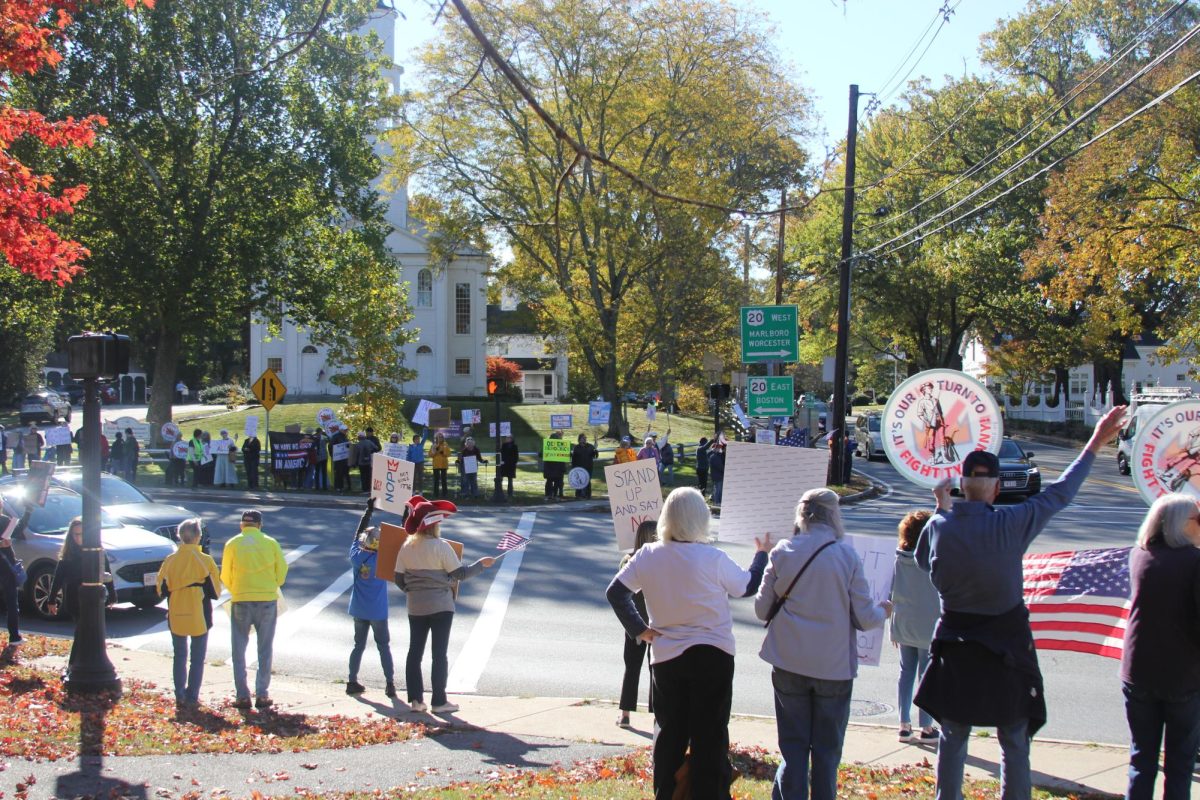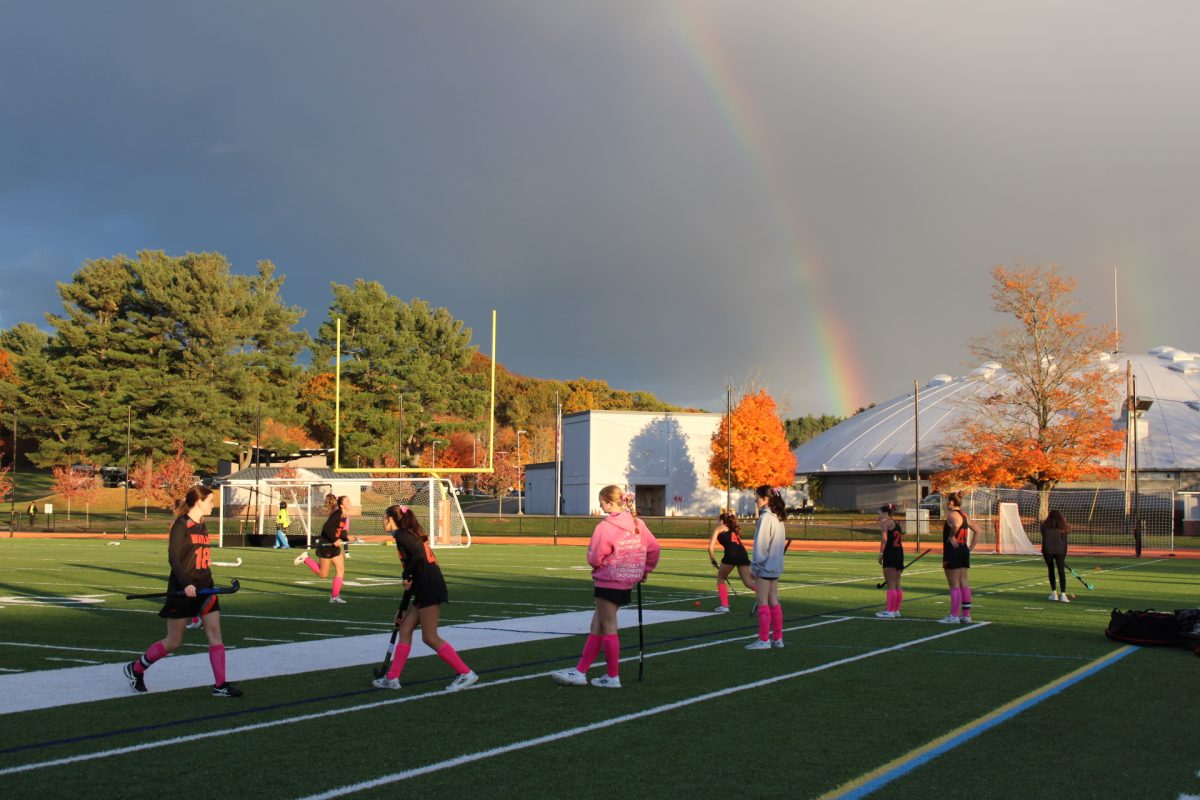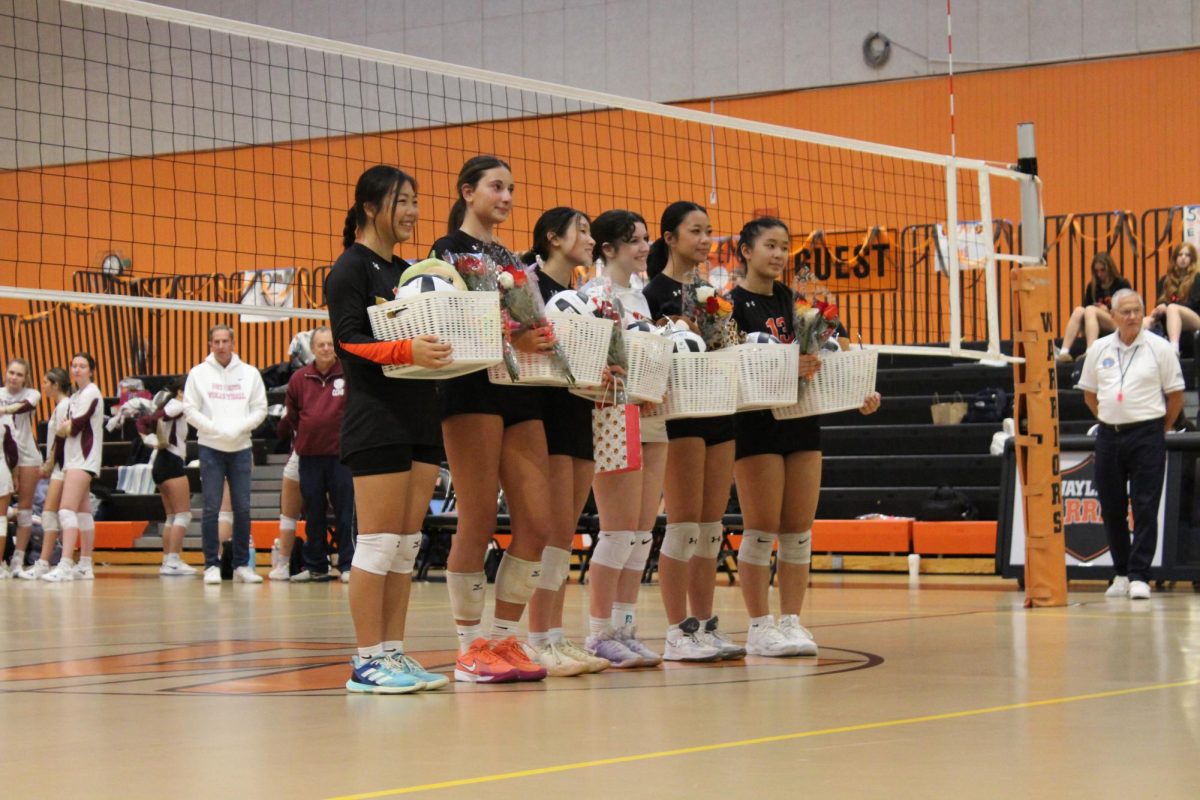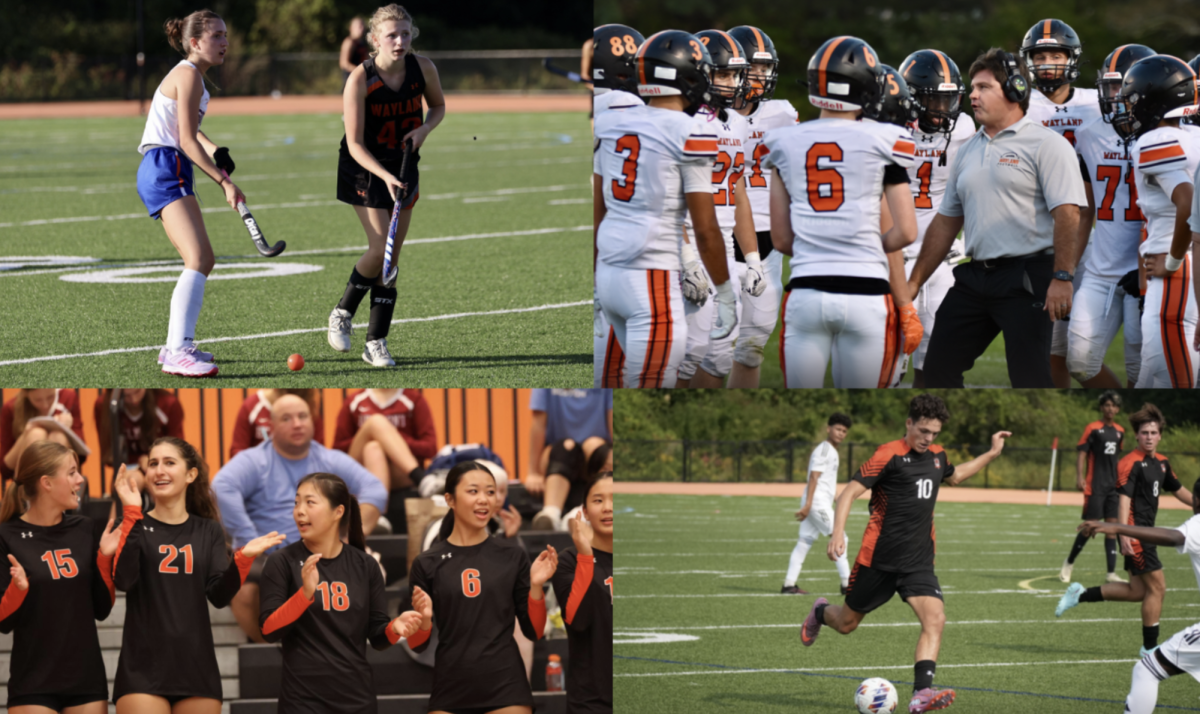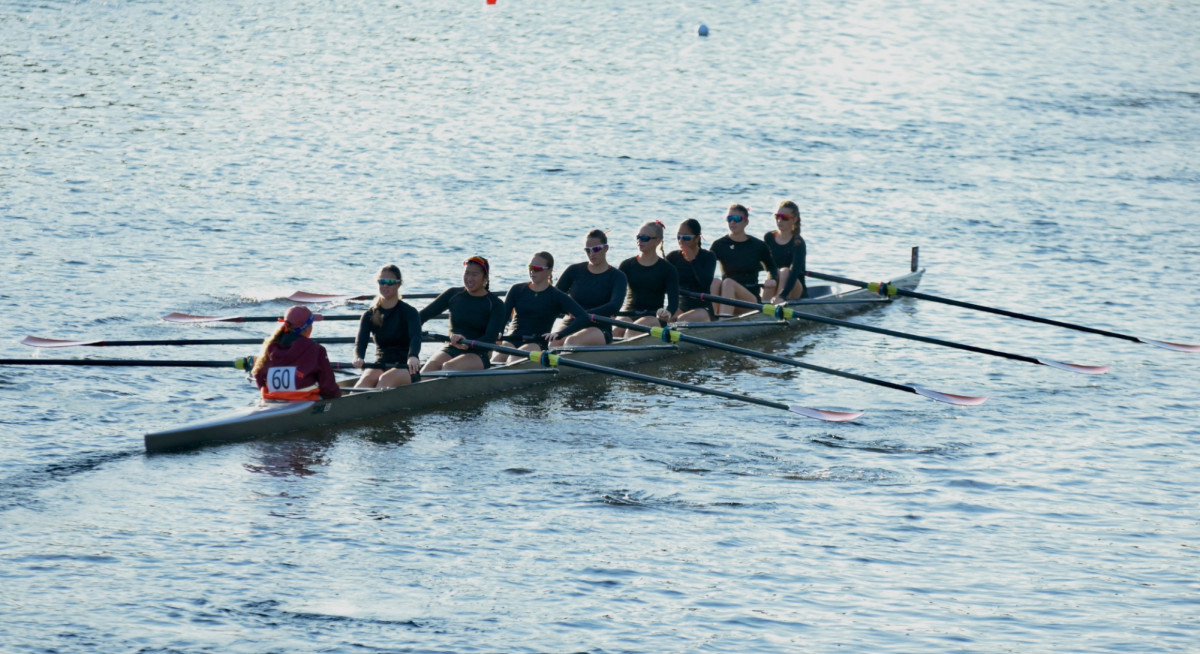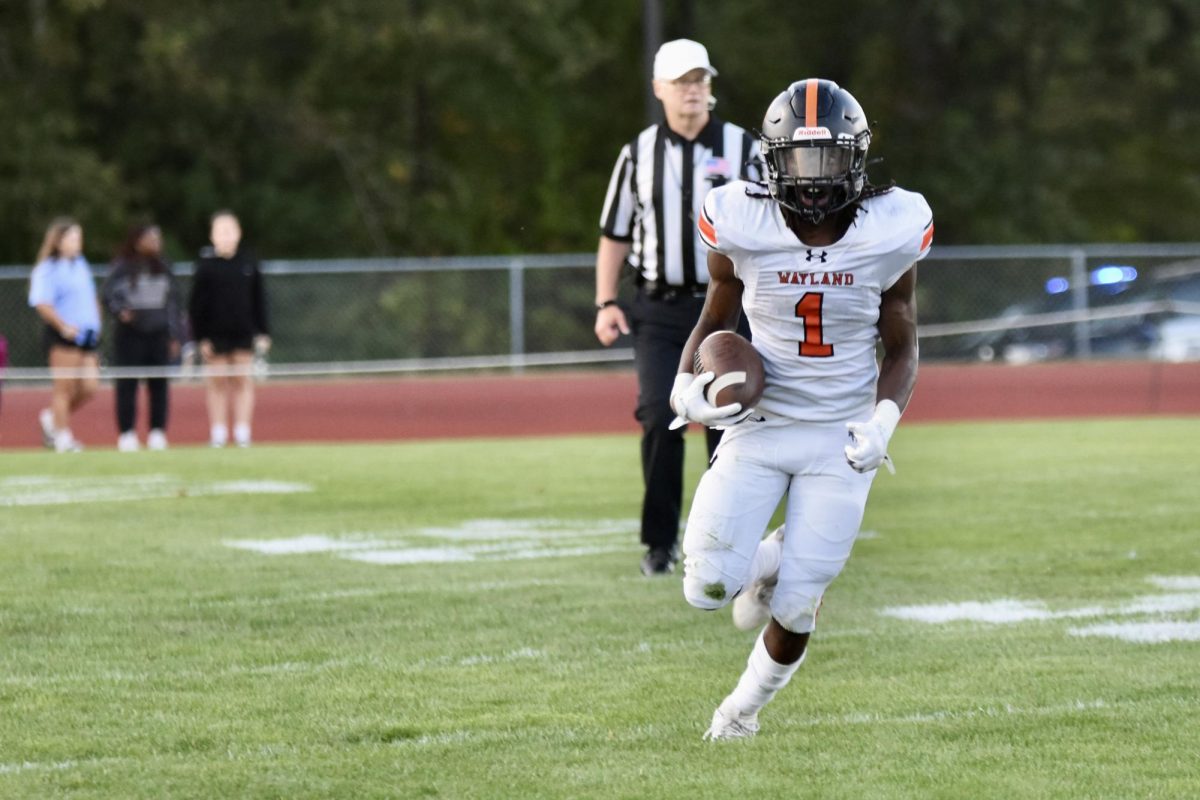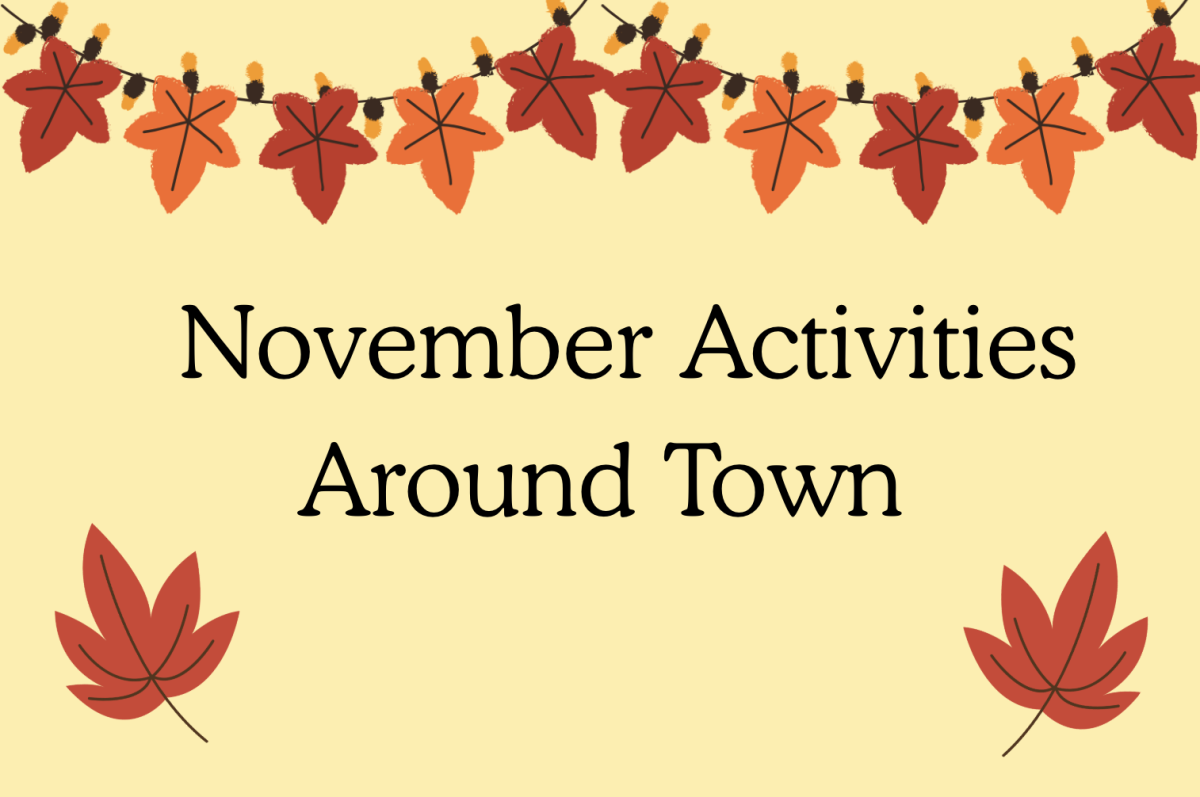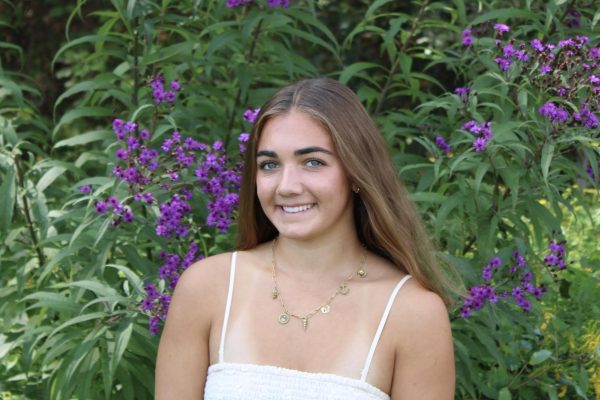I never would have expected to see a swastika spray-painted on the Wayland community pool building next to Wayland High School (WHS) on March 5. What I thought would be another ordinary Wednesday became a day that has bothered me ever since.
Going through the rest of that day felt nearly impossible. I felt alone in a building full of people I knew – people who I feared didn’t understand the weight of that symbol or the history behind it. I can’t help but wonder: if more time in school were devoted to Holocaust education, would there be more empathy and awareness of what the Jewish community has endured?
If students don’t identify with the victims of the Holocaust, they might not feel the urgency to understand the horrific events that unfolded. But they need to. Understanding the roots of antisemitism is the only way to counter the hate that still exists, and this education can’t be limited to a few days during freshman year history class.
The lack of Holocaust education in schools isn’t just a missed opportunity, it’s also a dangerous oversight. Rabbi Danny Burkeman of Temple Shir Tikva in Wayland pointed out how the rise of antisemitism is often based in what students haven’t learned.
“It’s clear that the Holocaust education has been less of a priority across the board in recent years, and the antisemitism that we see comes from a place of ignorance and a lack of understanding,” Burkeman said.
Holocaust education doesn’t just provide historical facts. Students would learn to recognize injustice and speak out against antisemitism. It’s important to learn who was targeted, who the perpetrators were and what the Holocaust entailed, but that alone isn’t enough.
Students should hear real stories – not just of Jewish, but of bystanders too. Highlighting these many perspectives helps students understand the importance of fighting against hate, even if it’s just standing up against what some might think is a harmless antisemitic comment.
Burkeman echoed the importance of Holocaust education, and how telling bystanders’ stories sheds light on how fewer bystanders might have led to a different outcome. This would encourage students to stand up against hate and antisemitism.
“When the majority remains silent in the face of hate or in the face of prejudice or in the face of antisemitism then it can flourish because those loud voices of hate tend to dominate,” Burkeman said.
Burkeman adds that it’s equally important to celebrate the strength and resilience of Jewish people. Like other minority groups, Jews have broken stereotypes and impacted society in many positive ways. Our refusal to be defined by tragedy deserves recognition.
“We need to get to a place where our education around minority communities, especially around the Jewish community, is not just about the negatives but also celebrating the beauty of Judaism and the contribution Jewish people have to our society,” Burkeman said. “Celebrating the way the Jewish community has been able to flourish is just as important.
For me, Judaism isn’t just a religion. It’s part of who I am. It connects me to my family, to generations of resilience and hope. Incorporating Jewish studies into the standard history curriculum wouldn’t just educate – it would make students like me feel seen, heard and valued.

